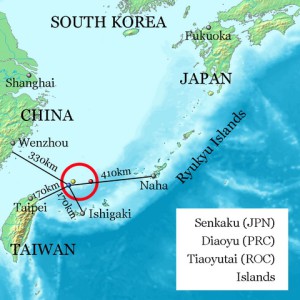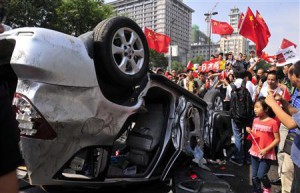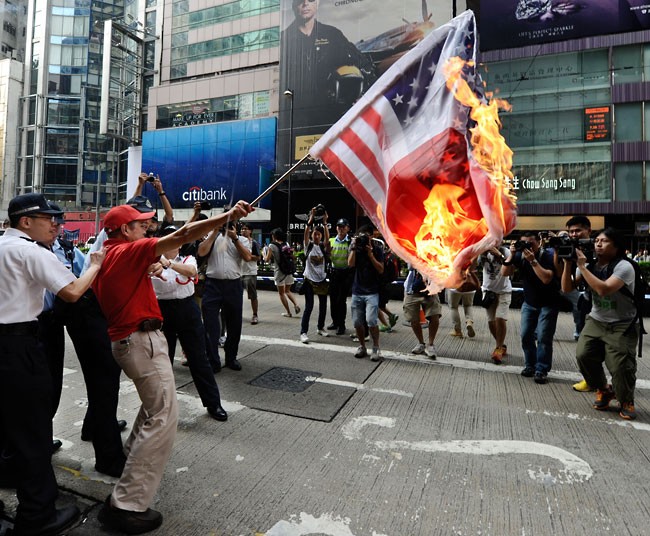The latest round of GDP figures indicated a 7% growth in the Chinese economy. At one point in the recent past, this would have been considered unimaginable. Since 1990, China has averaged unprecedented economic growth of roughly 10% a year. Yet, the declining production in the first quarter of 2015 marks the worst growth rate China has seen since the 2009 financial crisis. The effect of China’s economic influence on the global economy is such that the pulse of the Chinese economy is monitored closely out of fear that if China sneezes, the world will catch a cold.
Lower Growth- The New Norm
Never before in human history has a nation-state developed so rapidly, especially with such a large population. However, there are alarming signs in China’s growth patterns in three key areas of the Chinese economy; fixed asset investment in urban areas, retail sales, and industrial production. The data points to a deceleration in economic growth. This reduced level of economic output, down from 2014’s growth of 7.4% is considered the new norm by the National People’s Congress (NPC).
Nonetheless, China must create 24 million new jobs a year in order to accommodate the large number of students entering the workforce. The failure to do otherwise risks an increasingly aspirational youth becoming politically disillusioned with the Chinese Communist Party (CCP), whose legitimacy is dependent on economic growth. The ocean liner that is China’s economic miracle, overseen by three generations of Chinese leadership under Jiang Zemin, Hu Jintao and now Xi Jinping, has begun to slow down.
Domestic Nationalism and Foreign Events
Observers speculate that one of the consequences of reduced economic growth is a turn towards nationalism within China, incited by elements within the CCP as means of directing resentment towards an ‘other’ as opposed to the governing Communist party. Evident within China over the last decade have been pronounced and dramatic displays of nationalism, largely directed towards external actors and tolerated by the Central Committee in Beijing. Within these episodes of nationalism are clear patterns of behaviour.
In 2008, ethnic and political unrest occurred in Tibet, arguably China’s most sensitive province. The heavy-handed response by China saw the targeting of the Olympic Flame in its journey through several European capitals by pro-Tibetan protesters.
In London and Paris, demonstrators repeatedly broke through security cordons to disrupt the path of the flame. Western media in particular focused on the People’s Armed Police (PAP) counter-terrorism officers protecting the Olympic flame. Numerous articles and reports highlighted that many of the security officers were linked to PAP units conducting the Chinese crackdown in Tibet.

The response in China to the western scrutiny was in many ways astonishing. Across China’s social media platforms, virulent anti-western websites accused broadcasters such as CNN and the BBC of attempting to humiliate China in its Olympic Year by covering the violence in Tibet. The most high-profile of these was the ‘Anti-CNN‘ website that compared western media to Nazi propaganda.
A second more recent example occurred in 2012, when the Japanese government under Prime Minister Yoshihiko Noda nationalized the disputed Senkaku/Diaoyo Islands in order to prevent Tokyo’s then-nationalist governor, Shintaro Ishihara from purchasing them privately. China and its wider nationalist circles viewed Japan’s acquisition of the territory within the East China Sea, to which China has a claim, as changing the regional status quo.

Similar to the case with Tibet, the territorial dispute prompted a wave of anti-Japanese mass protests in Mainland China, with symbols of Japan’s economic investment coming under sustained attack. In the Chinese interior and coastal cities, Honda-made cars were rolled on their roofs, and Japanese-brand stores came under attack in addition to the flags of the United States and Japan being burned in the streets. For Chinese nationalists, this was provocation over islands associated with the Second World War by China’s old wartime foe, and once again the cries of humiliation were heard through the Chinese media outlets. Indeed, polling conducted by the University of Western Australia found many Chinese supported of the state’s claims on the East China Sea and other disputed territories.
The Century of Humiliation
Within the People’s Republic of China there is a notable pattern. Popular nationalism has consistently been associated with perceived slights or acts by external actors interpreted as humiliating China; a narrative which is tolerated and even encouraged by the Chinese political establishment. This perspective lies in China’s relatively recent history from 1839 to 1950, termed as the “Century of Humiliation”, when the Mainland was occupied and partially colonized in areas such as Hong Kong by the United Kingdom and later Japan. China is thus highly sensitive to what it views as foreign interference in areas it considers Beijing’s sovereign remit. Nationalist sentiment therefore, relies on both the politics of post-colonial grievance and the concept of “maintaining face” to one’s strategic rivals.
Chinese nationalism is focused against the two most powerful actors in the Asia-Pacific; the United States and Japan. In Washington’s case, this is due to the power of the US military compared to China’s and is heavily influenced by the proximity of US forces in Japan, Korea and the Philippines to the mainland. This proximity, thus, is central to many within China who fear that via the pivot, Washington intends to militarily and economically contain China’s rise.
In Tokyo’s case, this nationalism is more deeply rooted and relates to the wartime conduct of Japanese forces during the 1940s. It provokes an emotional response, especially near territory that is still considered occupied such as the East China Sea. For example, the Japanese Prime Minister’s visit to the Yasukuni Shrine- the final resting place of several wartime leaders, immediately provoked outrage in China.
As Chinese economic growth continues to fall, both Japan and the United States will likely fall victim to nationalist protests in the years ahead. These protests, tolerated by Xi Jinping, will follow the pattern of national humiliation based on the narrative of the Century of Humiliation.




